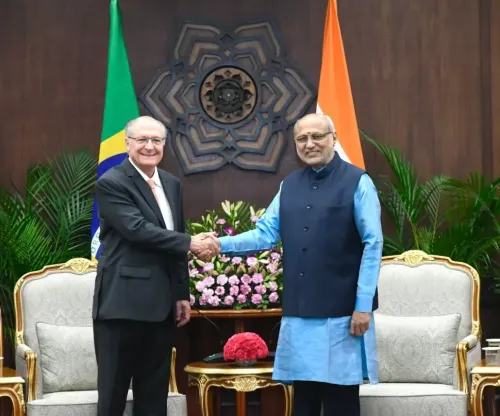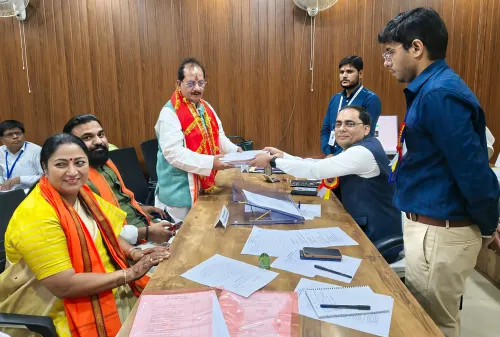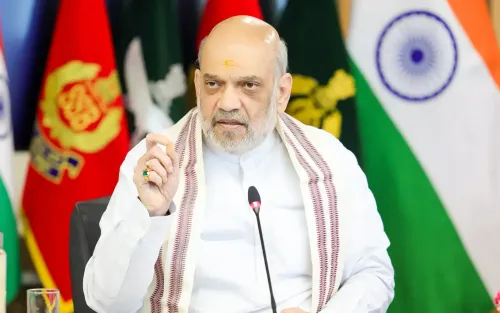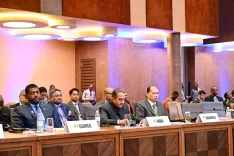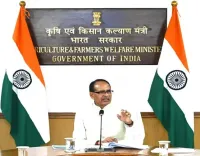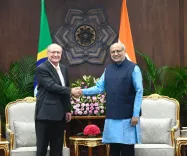Is India's Energy Policy Truly Independent of U.S. Pressure?
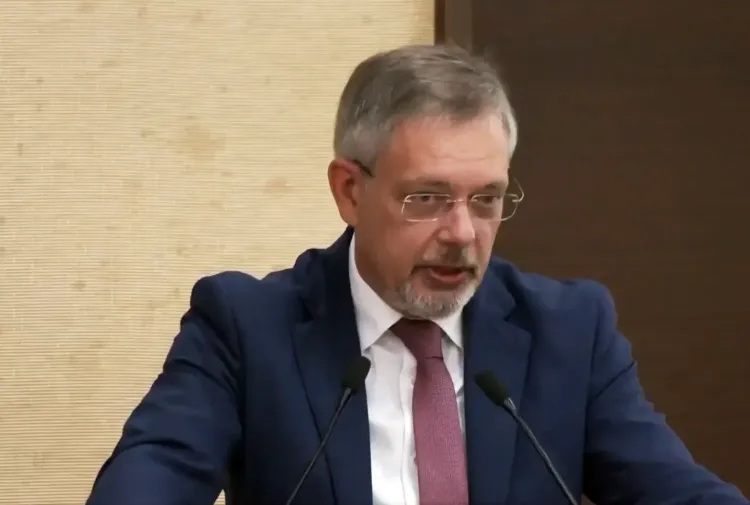
Synopsis
Key Takeaways
- India's energy policy is driven by national interests.
- Russian oil supplies are beneficial for the Indian economy.
- India prioritizes consumer interests in its energy decisions.
- The relationship between India and Russia is independent of U.S. influence.
- Stable energy prices and supply security are key objectives for India.
New Delhi, Oct 16 (NationPress) The Russian Ambassador to India, Denis Alipov, publicly refuted claims made by U.S. President Donald Trump suggesting that Prime Minister Narendra Modi had committed to ceasing oil imports from Russia. Alipov emphasized that New Delhi's energy strategy is fundamentally driven by national interests and the well-being of its citizens.
Addressing reporters, Alipov stated, "The Indian government prioritizes the national interest above all, and our collaboration in the energy sector aligns closely with those objectives."
He highlighted the significant advantages of Russian oil supplies for the Indian economy and the welfare of its people, noting that Indian leadership has consistently articulated the rationale behind the extensive energy cooperation with Moscow.
Alipov's comments followed Trump's assertion to the press that PM Modi had assured him that India would halt Russian oil imports—a position the U.S. has long advocated.
"He assured me today that they will not be buying oil from Russia. That's a big step... We're going to get China to do the same thing," Trump remarked, referencing PM Modi.
In response, Alipov stated, "I am not privy to discussions between the Indian Prime Minister and the President of the United States. However, we understand that the policy of the Indian government is fundamentally aligned with the interests of its people and economy, which do not conflict with Russia-India relations."
He further affirmed that Moscow maintains a "trustful dialogue" with New Delhi on various issues, including energy cooperation.
"We are engaged in close discussions with the Indian government on multiple fronts. We have the data and ongoing collaboration. I believe our discussions regarding this sector with India will continue," he added.
Clarifying Russia's position on India's relationships with other nations, Alipov mentioned, "Regarding India-U.S. relations, we do not interfere. This is a bilateral relationship between India and the U.S., and India maintains a separate bilateral relationship with us. We view these as independent. Our partnership is not aimed against anyone; it is designed to benefit both our nations."
He further reiterated, "We believe that our oil supplies greatly benefit the Indian economy and the welfare of its people. The Prime Minister and the Indian government have consistently highlighted these reasons for their ongoing energy cooperation with Russia."
Earlier, India's response to Trump's statement reiterated that its energy decisions are rooted in consumer interests, aimed at maintaining stable prices and ensuring supply security.
The Ministry of External Affairs (MEA) stated, "India is a major importer of oil and gas. Our priority is to protect the interests of Indian consumers amid a volatile energy landscape. Our import policies are entirely guided by this objective."
It further noted that "ensuring stable energy prices and secure supplies are the twin objectives of our energy policy, including broadening our energy sourcing and adapting as necessary to meet market demands."


